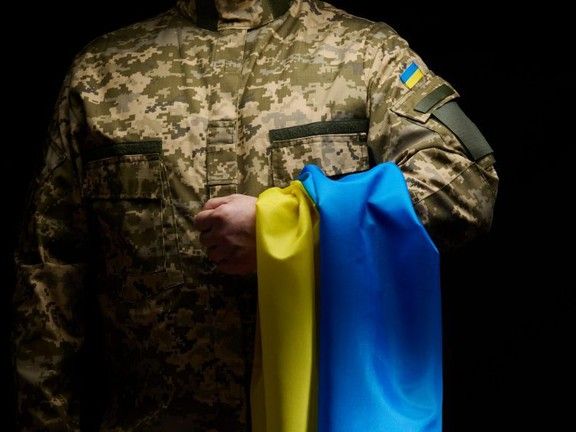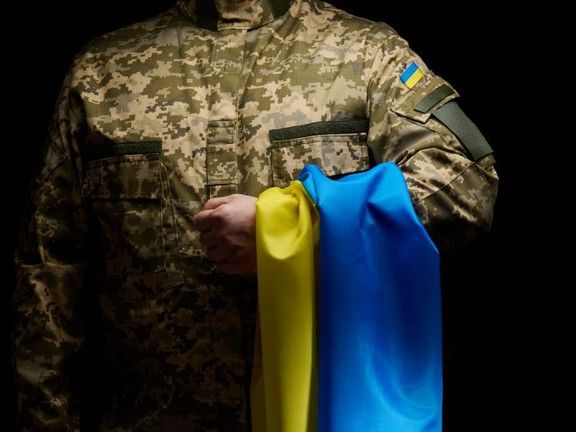
Just like an infectious disease that affects the weakest systems of the body and requires all resources to overcome the consequences, war exposes the most problematic areas in society. The state of affairs that we lived with and put up with before the full-scale aggression has lost its relevance in 2022, and there is no going back.
That is why the audit of accessibility and friendliness of the city of Kharkiv to veterans, conducted by the Pixel Charitable Foundation with the support of the International Renaissance Foundation, is a unique initiative that allowed not only to study the current state of affairs, but also to formulate recommendations for local authorities and public organizations. I am confident that the results of this audit and the original tool developed within the project can be effectively applied in any locality in the country.
The results of the audit showed that the attitude of Kharkiv residents towards military personnel and veterans is gradually deteriorating. This is manifested in greater indifference, decreased respect, and in some cases, aggressive behavior. This is often exacerbated by the fact that veterans are difficult to identify because they wear civilian clothes, in which case the attitude towards military personnel and veterans may not differ from that of other categories of citizens. Friendliness towards representatives of the veteran and military community depends on the administration of the institution and the facility. Some of the institutions that participated in the audit have information on priority/preferential service and available programs. However, such cases are the exception rather than the rule. For example, the audit did not reveal any information on special programs for members of the military and veteran community in banks.
Unfortunately, the audit showed that the urban space in Kharkiv is still quite limited in terms of physical accessibility - in particular, a significant number of public places do not meet the principles of inclusiveness, such as streets, crosswalks, recreational areas, and public transport. The city is not adapted to the comfortable life of people with disabilities and people with reduced mobility. The audit revealed problems with:
(1) creating specially designated parking spaces for people with disabilities and veterans,
(2) adaptability of institutions and facilities to provide services to people with disabilities (through narrow/double doors, narrow corridors, thresholds in offices),
(3) adaptability of pedestrian areas, public transport stops and public transport (trams, subway) for people in wheelchairs - from the place of residence of a person with a disability to, e.g., a social/medical institution,
(4) lack of restrooms for MHM and people in wheelchairs in public facilities, recreational infrastructure (cafes, restaurants),
(5) low level of adaptation of institutions, facilities, and pedestrian routes for visually impaired people (lack of signs, Braille signs, tactile strips, traffic lights with sound signals),
(6) arrangement of gyms accessible to MARA, etc.
The arrangement of accessible and adapted shelters for MHM and people in wheelchairs also remains a significant problem.
According to the results of the quantitative analysis and the developed index of accessibility and adaptability, the most suitable facilities for servicing people with disabilities are medical institutions, employment centers, ASCs, and large shopping malls. For the most part, these facilities have already been built to meet the requirements of a barrier-free environment. The most problematic issues include:
- The recreational infrastructure of Kharkiv is almost inaccessible for people in wheelchairs due to uncomfortable/narrow/double doors, thresholds, etc.
- The city's railway station and bus station face difficulties with the availability of parking spaces, stairs, and curbs in the surrounding area.
- A fairly high level of friendliness toward the military was found in social infrastructure and medical facilities, while a low level was found in retail facilities and bus stations.
- The audit confirmed a fairly high level of service in all city institutions that participated in the analysis.
The least adapted to meet veterans with disabilities are communal institutions, small shops, cafes, shopping centers, and any institutions located in old unrenovated buildings or in premises intended for shelter. However, according to some of the study participants, positive changes in this direction are ongoing: some of them began before the large-scale invasion.
In general, the audit results showed that local authorities in Kharkiv are able to respond promptly to requests and ensure that the space meets the principles of inclusiveness (for example, responding to targeted appeals from veterans). However, there is a problem of low awareness of military personnel and veterans about the available opportunities and initiatives of the city authorities. At the level of trends, a significant part of the expectations and wishes of the group's representatives are already being realized in the city, but are known to a limited number of the study participants. In general, there is a tendency for the situation to improve: veterans with disabilities who have undergone treatment and rehabilitation in other cities of Ukraine note that Kharkiv is more adapted, convenient and comfortable compared to other cities, such as Kyiv and Lviv.
Surprisingly, military personnel and veterans have a more positive experience in civilian hospitals than in military hospitals (Regional Military Hospital). The key problems they face in a specialized facility for the military are:
- The attitude of the staff towards military personnel and veterans is worse than in civilian institutions;
- A lower level of attention paid to patients (which significantly determines the comfort of staying in the institution);
- Lack of a single standard of service (study participants report different material support, staff behavior and quality of services depending on the department). Some of the survey participants justify the situation in the hospital by explaining the overload of the hospital and staff fatigue.
Despite different experiences in civilian facilities in terms of comfort and quality of treatment, they are generally rated higher.
The results of the audit suggest that many military and veterans in the city have problems finding the location of institutions and facilities due to the lack of signage. However, this situation is probably related to the security factor due to military operations.
Thus, the audit revealed a number of problems that significantly affect the daily lives and well-being of veterans and military personnel in Kharkiv, and this allowed us to develop a number of recommendations to the city authorities, businesses, and heads of various institutions:
- PROVISION OF SPACE THAT MEETS THE PRINCIPLES OF INCLUSIVENESS. Compliance with the Building Code for Inclusive Buildings and Structures. Important: Ensuring standards not only at the entrance, but throughout the entire territory, including the availability of appropriately equipped bathrooms, non-slip flooring, no thresholds, etc. Ensuring safe and comfortable routes of transportation in the city (reducing the height of curbs, providing exits at crossings). Ensure adaptability of urban transport; create a municipal taxi, in particular, friendly to passengers with reduced mobility. Creating/ensuring more parking spaces for people with disabilities. Ensure the principles of inclusiveness in existing recreational areas and parks of the city.
- IT IS IMPORTANT TO PROVIDE BETTER INFORMATION ABOUT THE EXISTING OPPORTUNITIES AND INITIATIVES OF THE MUNICIPAL AUTHORITIES AIMED AT SUPPORTING VETERANS: in particular, rehabilitation, targeted financial assistance, housing, etc.
- It is necessary to develop programs to facilitate the employment of veterans. Raising awareness of available vacancies, placing them in places most frequently/obligatorily visited by the military and veterans. Creating an encouraging emotional message: “a job is looking for a veteran” instead of ‘a veteran is looking for a job’. Incentivize businesses to actively engage veterans; create inclusive workplaces. Providing more attractive conditions for starting a business: information assistance and obtaining financing.
- SPECIAL PROGRAMS ARE NEEDED TO Foster a change in attitudes and relations between the civilian population and veterans. Promoting the development of veterans' skills for adaptation to civilian life (methodological support, psychological assistance, creation of communication centers, etc.) Information and psychological work with the population to develop skills of correct behavior and communication with the military and veterans. Introduce standards of communication/service for military personnel and veterans in institutions and facilities.
- SERVICES, AGENCIES, AND INSTITUTIONS SHOULD WORK TO REDUCE BUREAUCRACY. Optimization/reduction of the number of authorities involved in the provision of identical services, decision-making on military personnel, veterans (for example, for pensions). Optimization of the volume of documents required to receive services. Transferring the document flow into electronic format.
- THE CITY NEEDS PROGRAMS AND PROJECTS TO CREATE MORE OPPORTUNITIES FOR REHABILITATION AND LEISURE. Establishment of a rehabilitation center with free rehabilitation for veterans. Establishment of sports centers for veterans, including periodic competitions. Options for free interesting leisure activities: visits to cinemas, cultural institutions, excursions, free subscriptions to sports clubs, etc.
Like it or not, we have to learn to live in a new Ukraine where the war has affected every family in one way or another, where hundreds of thousands of men and women are becoming veterans; and where the number of people with disabilities is constantly growing. To say that these people are vulnerable would be unfair to them. It would be more accurate to emphasize that society owes them an irreparable debt. The ability to understand this and act accordingly is an important sign of maturation and adaptation of society to new realities.



